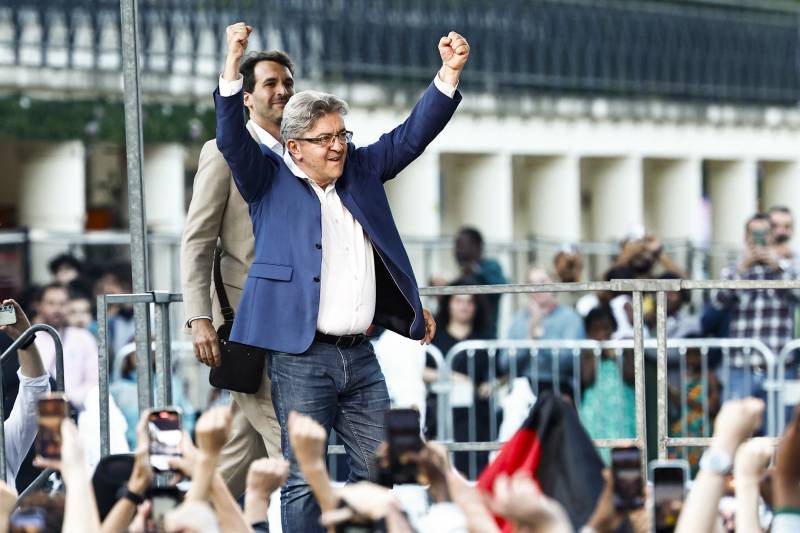
Voters began lining up at 8am on July 7 to cast their votes in the second round of the elections for the French National Assembly. With the National Rally (RN) having led the first round, the remaining parties had reluctantly strung together informal deals and agreements to prevent the ascent of the nationalist far-right RN.
Some opinion polls suggested that the likeliest outcome would be a hung parliament, with neither President Emmanuel Macron’s centrist coalition, nor the right or left-wing coalitions having the numbers to form a government. Many others cautiously warned against a right-wing majority.
Turnout for the second round was 59.71%, only slightly higher than the first round a week prior.
As the polls closed and the exit poll results started trickling in, the National Rally had all the reasons to be disappointed. The far-right party and its allies did much worse than was predicted, and the leftist New Popular Front (NFP) alliance led the exit polls ahead of Macron’s centrist coalition.
Later in the evening of July 7, Prime Minister Gabriel Attal tendered his resignation to President Macron.
The New Popular Front, led by Jean Luc-Melenchon, emerged as the largest alliance, winning 188 seats with 32.6% of the popular vote.
President Macron’s centrist Ensemble coalition came in second, securing 27.9% of the popular vote and 161 seats. The far-right National Rally and its allies managed 142 seats, with 24.6% of the vote.
No coalition managed to eke out a majority in the 577-seat National Assembly, where 289 seats are required for a simple majority.
After the far-right National Rally emerged as the leading party in the first round, the left and centrist coalitions hastily put together a “republican front” to reduce the number of three-way contests in the second round and defeat the RN.
The figurehead of the New Popular Front (NFP), Jean Luc-Melenchon said about the French left that “its constituent parts, the united left, have shown themselves equal to the historic occasion and in their own way, have foiled the trap set for the country. In its own way, once again, it has saved the republic.” Melenchon, who leads the France Unbowed far-left party, said that he should be allowed to form the government.
What does it mean now that France will have a hung parliament?
Since neither the far-right, nor the centrist or left coalitions have a majority, France has a hung parliament. A government can only be formed after dealmaking between the parties and alliances has concluded.
France does not have a constitutionally mandated time period during which a government has to be fashioned after election results are made official. It might be days, even weeks, before a governing coalition is put together.
Macron has expressed his unwillingness to work with Melenchon and the far-left, claiming that they pose as much of a danger as the far-right. He will remain in office as President till 2027, and has wide ranging powers over foreign policy, Europe policy and the armed forces.
As President, Macron has also been more than willing to rely on Article 49.3 of the constitution. Originally intended to offer a solution to political deadlock in parliament, 49.3 allows for a bill to be passed without being voted on in the National Assembly with the assent of the Prime Minister. Macron has pushed through many of his signature policies using Article 49.3, having used the provision 11 times in his second term alone.
Having called a snap election to add clarity to the political landscape, Macron finds himself in a tougher and decidedly weaker position. Already having governed with a minority government since 2022, Macron will likely have to work along a Prime Minister from a different party.
The leftist coalition, named in the honor of the original Popular Front in 1936 that sought to deny power to the far-right, is only loosely held. Even though Melenchon is recognized as the coalition’s figurehead, the alliance consists of Melenchon’s France Unbowed party, the Socialists, the Ecologist, the more center-left Place Publique, among others. The coalition is by all means a house divided.
Although the National Rally has been defeated, its overall showing should give everyone pause. In 2017, when Macron won his first term as President, the RN only mustered 8 seats. In 2022, that number surged to 89 seats. On Sunday, the RN won 125, making it the largest individual party. The growing support for the far-right party's brand of ultranationalism in France means it will likely remain a potent force, while the solidity of the leftist coalition is uncertain and untested.
